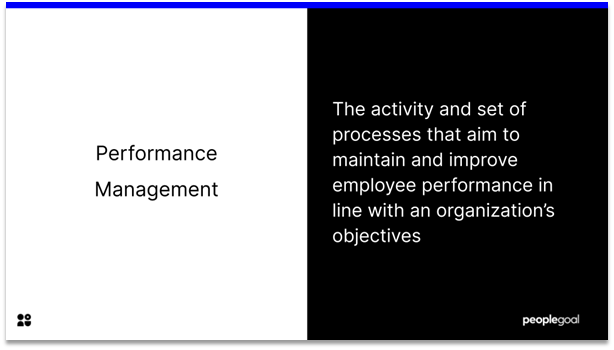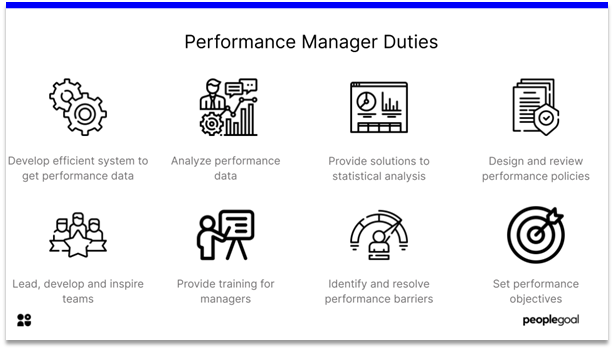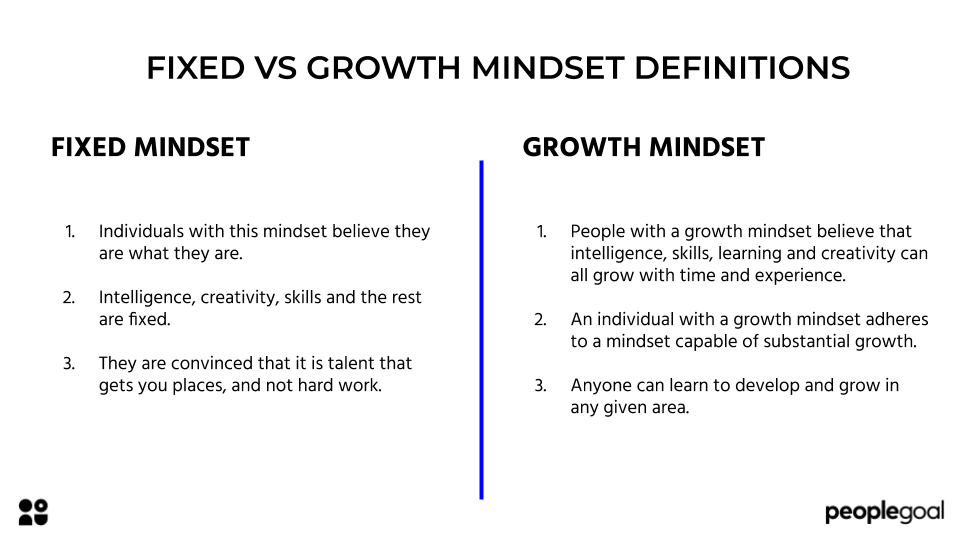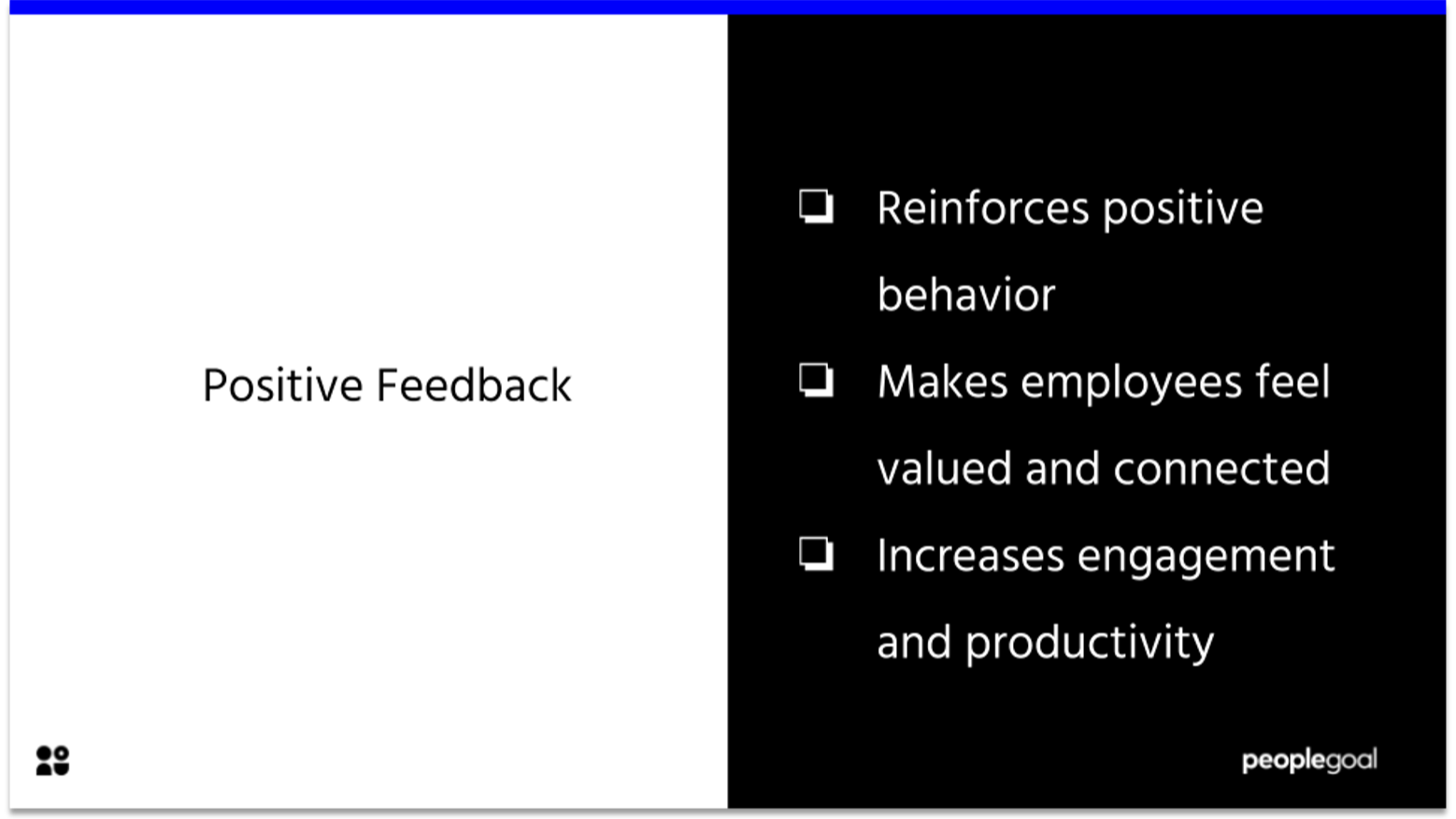When we say “performance” in a business context there are several things we may be referring to. Performance can be tracked at an individual, team or department level and even at organization-wide perspective. So when you’re looking for performance manager or maybe looking into a position as one, it’s not immediately clear what level of performance such a person should be managing.
Even though we are often talking in dollars and cents when discussing business performance, the overall success of the business can be build down to the performance of its’ individual employees. Performance management__ is the activity and set of processes that aim to maintain and improve employee performance in line with an organization’s objectives. You read more about the theory behind and importance of the discipline in our blog titled" What is performance management?"

While line manages often handle the operational side of performance management through reviews, development plans, etc., performance managers are more concerned with the strategic view of performance. Depending on the organization they may also actively manage groups of employees, including other managers. Because it is a very people-centric role, they often work inside or very closely with the human resources team, but must also have strong relationships with finance, and senior management.
Here are more details on a typical performance manager role:
Sample Duties:
- Develop efficient systems for collection information on performance
- Gathering and analyzing cross-functional performance data
- Presenting statistical performance analysis and recommending solutions
- Design and review policies related to employee performance
- Lead, develop and inspires teams
- Provide training and development to managers on best practices
- Identify, report, and resolve workplace or interpersonal barriers to performance
- Setting performance objectives and updating as necessary

Average Salary: £37,000
Required Experience: Bachelor’s Degree and 5+ years of management experience. Data analysis, project or strategic initiative management and communication/relationship building skills important.
As you might imagine given the role responsibilities performance managers benefit from online systems across small, medium and large organisations. Digital tracking of meetings and interviews as well as feedback and review appraisals make it possible to track progress over time and quantify performance metrics. Software solutions also allow for easy analysis and manipulation of performance data for delivery and presentation to senior management.
Even after reaching the 20 employee mark, business can begin to see efficiency gains from using a digital platform for tracking and tabulating performance metrics. Find out more why performance management software is worth it.
Ready to 3x Your Teams' Performance?
Use the best performance management software to align goals, track progress, and boost employee engagement.






